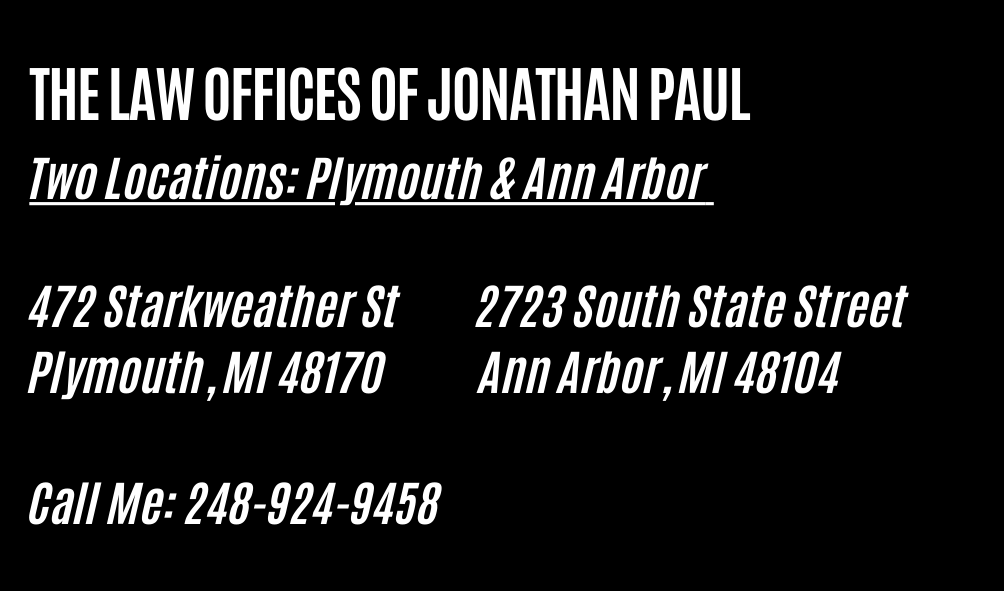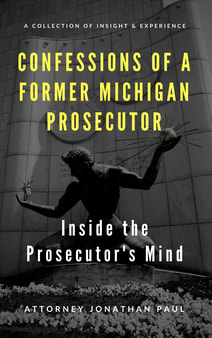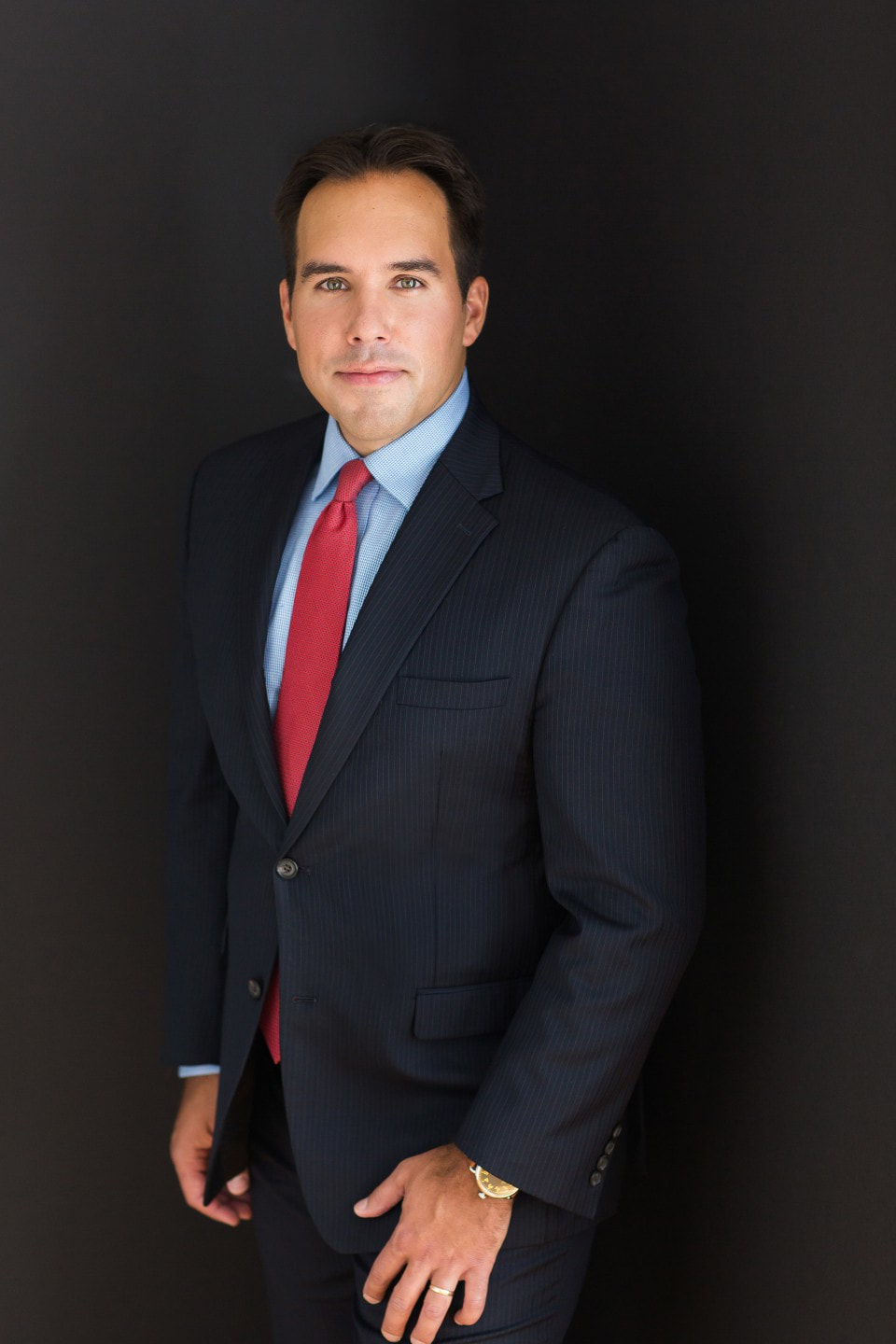If you have been charged with either Reckless or Careless Driving in Michigan, it's important to know what the prosecution must prove. If charged with either offense, most jurisdictions will offer a plea to a lesser charge, but if the prosecution cannot prove the charge, why should you plea? You should not plea to either offense if facing a weak case, because both crimes carry substantial driving sanctions for your Michigan license. If charged with reckless or careless driving, and you are not offered a plea then you should most certainly challenge the charge.
These two offenses can have a major impact on your driver's license, and could sink you financially. As your attorney, we will work to defeat the case or have the matter dismissed. As a former prosecutor, I will also engage in negotiations with the prosecuting attorney, and get you the best possible plea deal as a backup plan. I will provide you options, and we will decide the best path together as a team.
Michigan Reckless Driving
To found guilty of this offense, the prosecution must show that you were driving a car on a road open to the public or generally accessible to cars, including a parking lot, and you drove the car in a willful or wanton disregard for the safety of persons or property. "Willful or wanton disregard" means more than simple carelessness but does not require proof of an intent to cause harm. It means knowingly disregarding the possible risks to the safety of people or property.
This offense is a 90-day misdemeanor and carries many of the same license implications, fines and costs of a drunk driving offense. If convicted of this offense, six points would be added to your license.
The prosecution will attempt to prove this charge with testimony of your driving including speed, along with the the road conditions. If there is evidence of intoxication, the prosecution will be allowed to introduce this evidence; the jury may factor this into the decision whether there was a "willful or wanton disregard" for the safety or persons or property, but this alone is not enough for a conviction.
One way to defeat a reckless driving charge is to show an error in judgment on the part of the charged driver to explain the erratic driving, which creates reasonable doubt as "willful or wanton disregard". Let's say you're observed switching lanes, which causes an accident, and you're charged with reckless driving - well if the other car was in your blind spot, then this may be merely negligence on your part, not willful disregard.
Michigan Careless Driving
Careless Driving requires the prosecution to prove you drove in a careless, imprudent or negligent manner. Reckless requires you intentionally drove in a certain manner, whereas Careless doesn’t look to your willful disregard but rather the results of your driving.
Careless driving carries the possibility of three points on your license, but it is not a misdemeanor, and carries no possible jail time. The fines, costs and license implications are less severe than Reckless Driving.
A careless driving case has a lower burden for the prosecution. Depending on the facts in your case, it's possible that the other driver was at fault, or your driving decision was out of necessity such as to avoid another car, a pot hole or any other reasonable explanation.
If you're charged with any of the following offenses, you should speak to an attorney before pleading responsible. There could be points added to your license, and your license could be suspended or revoked. Proceed with caution.
These two offenses can have a major impact on your driver's license, and could sink you financially. As your attorney, we will work to defeat the case or have the matter dismissed. As a former prosecutor, I will also engage in negotiations with the prosecuting attorney, and get you the best possible plea deal as a backup plan. I will provide you options, and we will decide the best path together as a team.
Michigan Reckless Driving
To found guilty of this offense, the prosecution must show that you were driving a car on a road open to the public or generally accessible to cars, including a parking lot, and you drove the car in a willful or wanton disregard for the safety of persons or property. "Willful or wanton disregard" means more than simple carelessness but does not require proof of an intent to cause harm. It means knowingly disregarding the possible risks to the safety of people or property.
This offense is a 90-day misdemeanor and carries many of the same license implications, fines and costs of a drunk driving offense. If convicted of this offense, six points would be added to your license.
The prosecution will attempt to prove this charge with testimony of your driving including speed, along with the the road conditions. If there is evidence of intoxication, the prosecution will be allowed to introduce this evidence; the jury may factor this into the decision whether there was a "willful or wanton disregard" for the safety or persons or property, but this alone is not enough for a conviction.
One way to defeat a reckless driving charge is to show an error in judgment on the part of the charged driver to explain the erratic driving, which creates reasonable doubt as "willful or wanton disregard". Let's say you're observed switching lanes, which causes an accident, and you're charged with reckless driving - well if the other car was in your blind spot, then this may be merely negligence on your part, not willful disregard.
Michigan Careless Driving
Careless Driving requires the prosecution to prove you drove in a careless, imprudent or negligent manner. Reckless requires you intentionally drove in a certain manner, whereas Careless doesn’t look to your willful disregard but rather the results of your driving.
Careless driving carries the possibility of three points on your license, but it is not a misdemeanor, and carries no possible jail time. The fines, costs and license implications are less severe than Reckless Driving.
A careless driving case has a lower burden for the prosecution. Depending on the facts in your case, it's possible that the other driver was at fault, or your driving decision was out of necessity such as to avoid another car, a pot hole or any other reasonable explanation.
If you're charged with any of the following offenses, you should speak to an attorney before pleading responsible. There could be points added to your license, and your license could be suspended or revoked. Proceed with caution.



